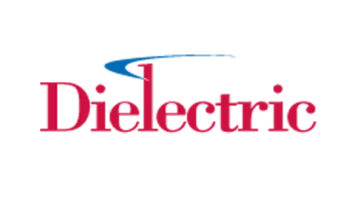
A FM translator station in Rhode Island that allegedly failed to file a license renewal application on time is being told to pay a $5,000 monetary forfeiture, down from an original amount of $7,000.
Federal Communications Commission rules state that broadcasters must apply for a license renewal no later than the first day of the fourth month before the expiration of the license. If a station has not filed a license renewal application on time, the station has no authority to continue operation past the expiration date unless it receives a Special Temporary Authorization (STA) from the commission.
In the case of DiPonti Communications, licensee of FM translator W276DF in Westerly, R.I, the license was set to expire on Nov. 8, 2017. The issue was complicated by the fact that the station’s prior licensee — Harvest Broadcasting Association — received a one-year, short-term renewal on Nov. 8, 2016, as part of a consent decree with the bureau. (Harvest and DiPonti filed an application for consent to assign the license from the former to the latter on Nov. 3, 2016, several days after the consent decree and several days before the short-term renewal grant.) The Media Bureau also granted Harvest’s request to relocate the station from Vermont to Rhode Island so the station could rebroadcast DiPonti’s station, WBLQ(AM).
[See Our Business and Law Page]
The next steps moved smoothly: DiPonti constructed at the new Rhode Island location, filed a covering application to license the new facilities and received a covering license by the bureau that reminded the licensee that the station license would expire on Nov. 8, 2017. The bureau made clear that the covering license the station received did not extend the station’s license term — even though the license substituted the new Rhode Island facilities for the prior Vermont facilities.
That meant that DiPonti should have filed a license renewal application by July 1, 2017, which would have been the first day of the fourth full calendar month prior to the Nov. 8, 2017, expiration date. But DiPonti did not do so — not until three years later on Sept. 11, 2020. It also did not request an STA to continue operating under terms of the expired license until Sept. 16, 2020.
While DiPonti acknowledged that the 2020 application was late, the licensee did not realize that the license had expired when it did.
On Sept. 21, 2021, the bureau released a notice of apparent liability proposing a forfeiture of $7,000 — $3,000 for failing to file the renewal application on time and $4,000 for operating without authorization.
Soon after DiPonti asked the bureau to consider reducing the amount because that there was a discrepancy between expiration dates in the consent decree and in the FCC’s Licensing and Management System (LMS) database. But the FCC disagreed and said that an LMS error could not have caused the violations because that database did not come online until 21 months after DiPonti missed the renewal filing deadline.
DiPonti filed another petition for reconsideration and argued several new points, including that DiPonti was not responsible for Harvest’s misconduct that resulted in the short-term renewal; DiPonti’s broadcasts after the expiration date provided a public service without causing interference to any other stations; DiPonti had a clean record of compliance; the bureau incorrectly discounted the LMS database error since the same incorrect information appears in the existing Consolidated Database System; the violation was for a shorter period of time than the bureau suggested; and DiPonti was unaware that its license had expired because the commission continued to assess regulatory fees that showed the station as properly licensed. To support these arguments, DiPonti submitted copies of regulatory bills, database printouts and a covering license document.
After assessing DiPonti’s second petition, the Media Bureau agreed with some of the licensee’s arguments, including the suggestion that the station was serving the public interest and that DiPointi’s violations do not constitute serious violations.
As a result, bureau adjusted the forfeiture in light of DiPointi’s history of compliance and admitted that there is a remote possibility that a database error might have contributed to the confusion. As a result, the bureau said DiPponti is now liable for a forfeiture of $5,000.












